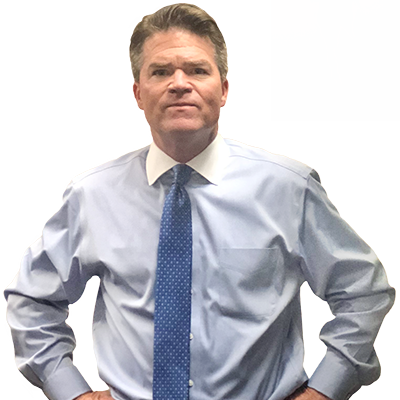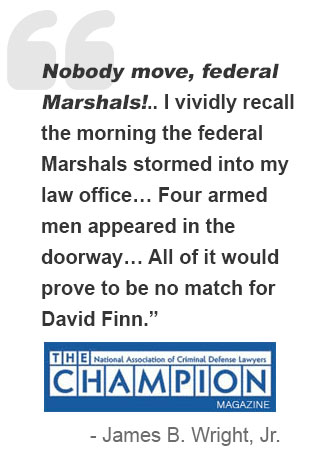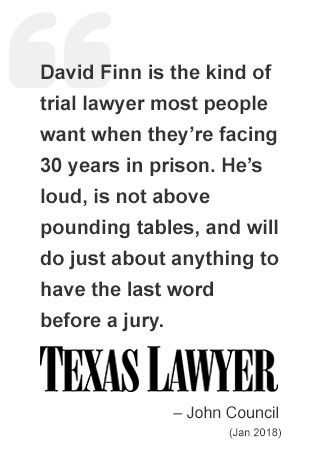


Tenacious T: Texas Lawyer-Miriam Rosen
Tenacious T: Terri Moore Shakes Things Up at the Dallas County DA’s Office
By Miriam Rozen
Texas Lawyer
Monday, April 16, 2007
Terri Moore still hasn’t found time to hang pictures. The new first assistant district attorney at the Dallas County District Attorney’s Office has only gotten as far as placing the framed mementos from her 14-year career as a prosecutor on the floor, leaned precariously against the walls of her office.
During an interview, the frames rattle a bit when Moore pounds both fists on her desk to demonstrate the difference between her personality and that of new Dallas County District Attorney Craig Watkins. Watkins is “such a sweet guy,” Moore explains; she is like the boom that sounds as her clenched hands hit the wood.
Dallas County criminal-defense lawyers can expect a lot more rattling with Moore as first assistant DA. As a veteran prosecutor with experience at the state and federal level in Tarrant County, her reputation as a relentless courtroom fighter preceded her professional move to Dallas.
As an assistant U.S. attorney in Fort Worth, she tried the largest Internet child pornography case in the nation securing a conviction in 2001 against Thomas Reedy on 89 counts related to transporting and distributing child pornography. At the Tarrant County DA’s office, where Moore rose to become deputy chief of the trial division, she tried multiple gang-related cases in the 1990s.
“A new sheriff has come to town, and her name is Terri Moore. She is going to make people happy and make people mad, and it’s going to be the same people,” says Moore, who commutes to Dallas each workday from her home in Fort Worth.
Moore twice ran unsuccessfully for Tarrant County DA — once in 2002 and again in 2006. Both times Democrat Moore lost to Republican incumbent DA Tim Curry by only a few percentage points. Curry did not return a telephone call seeking comment.
As first assistant DA, the 48-year-old Moore reports directly to Watkins. She supervises all 234 prosecutors in the Dallas County DA’s office, makes hiring decisions and chooses the cases she wants to try.
“The reason I hired her is that we needed to change the mind-set, so we needed to bring [in] an outsider with experience and who was well respected. Terri is very strong, well respected, opinionated and vocal. We balance each other. She is tough and tenacious. And I am laid back,” says Watkins.
Moore has already put her stamp on the DA’s office, embarking on an ambitious plan to institute fundamental changes to the way it does business. Since she became first assistant DA on Jan. 29, Moore has:
* Invited the Innocence Project of Texas, a consortium of research teams at various universities devoted to seeking freedom for the wrongfully convicted, to review cases in which the DA’s office previously had fought defense requests for review of DNA evidence;
* Launched new policies for first-time offenders accused of marijuana possession and shoplifting to help them turn their lives around;
* Proposed reducing dramatically — to almost zero — the number of examining trials held before magistrates in Dallas courts, at which defense lawyers get the opportunity to review prosecutors’ evidence before clients are indicted;
* Initiated plans to start an open-file policy, automatically giving defense lawyers access to the same evidence that prosecutors see, including police files, all witness statements and all discovery;
* Altered the tone of relations between prosecutors and defense lawyers, telling her staff to treat the other side with respect and decorum and not like the enemy.
“I talk to people [prosecutors] who under the previous regime would have been curt and thrown me out of their office. Now they are civil,” says Robert Udashen, a partner in Dallas’ Sorrels Udashen & Anton, who is president of the Dallas Criminal Defense Lawyers Association.
So far, defense lawyers and longtime prosecutors approve of Watkins’ selection of Moore. “She is extremely smart, creative, strong and effective with juries. I just think she was born with those skills,” says Michael Ware, a criminal-defense solo in Fort Worth who remembers losing at least two cases against Moore when she was assistant DA in Tarrant County. “That Watkins wanted her and recruited her shows he has good judgment.”
Toby Shook, the Republican candidate who lost to Watkins in the November 2006 election, says, “I think Watkins needed to get someone with a lot of experience.” Shook, a former felony bureau chief who worked for 23 years in the Dallas County DA’s office, adds, “Hiring her has sent a good message to the police and the prosecutors.”
Ellyce Lindberg, an assistant district attorney who served for seven years under Watkins’ predecessor, Republican Dallas County DA Bill Hill, says, “We’re excited about having her come over here. It was very tumultuous for us when the election took place and having her come has comforted all of us.” Lindberg says. Hill announced in November 2005 that he would not seek re-election to the post.
Initially, Moore says, she wasn’t sure she wanted to accept the position at the Dallas County DA’s office. Watkins persuaded her, Moore says, with his amiable personality. “I was caught off guard. He said he needed the help, and he really struck me as just so real,” she says.
“She is overly qualified. She is qualified enough to be DA herself. That’s the reason I hired her,” Watkins says of Moore.
Watkins says he has no problem with what he concedes is the perception that Moore’s credentials overshadow his. Prior to his election in November 2006, Watkins, 39, had spent most of his legal career as a criminal-defense lawyer, who also ran a bail bond business. His only experience as a prosecutor was as a summer intern at the Tarrant County DA’s office in 1993.
But he says the significance of his qualifications for his current position has been undervalued.
“I don’t look at myself as being inexperienced. I’ve run a business, and I know how to try cases,” he says. “My inexperience is a creation of the media. I know who I am, and I know what I bring to the table. It makes perfect sense for me to get a Terri Moore with her different experience. It will help me move my agenda. We are on the same page.”
Watkins says he and Moore are “restoring with the staff and the general public what a DA should be doing, dispensing justice. . . . We’re trying to look at the DA’s office not just in terms of prosecutions and convictions but in terms of crime prevention, using it as a bully pulpit.”
To that end, Moore already has initiated new policies for first-time offenders accused of marijuana possession and shoplifting. At their first trial settings, prosecutors will offer such defendants a choice: Alleged shoplifters who plead guilty can agree to a lesser sentence that requires them to perform community service and attend a class that educates them on the societal costs of theft. Alleged drug offenders who plead guilty can agree to a lesser sentence that requires them to perform community service and submit to urine testing by a private lab, which is paid for by the defendant but reports directly to the court.
“First-time offenders, we need to get them back on the right track not throw them in jail,” Moore says.
DNA Leader
The youngest of nine children, Moore grew up in Cleburne. Her father was a plumber, and her mother was a housewife. Moore, the first person in her family to earn a law degree, graduated from South Texas College of Law in Houston in 1986.
After graduation she joined the Tarrant County DA’s office as an assistant district attorney and worked there for 10 years, rising to chief of the trial division. In 1997, she left the DA’s office and spent the next four years as an assistant U.S. attorney with the U.S. Attorney’s Office for the Northern District of Texas in Fort Worth.
In 2001, she left the U.S. Attorney’s Office to open a solo criminal-defense practice in Fort Worth.
“When she gets involved in a case, it’s never a 25 percent effort. It’s always a 120 percent effort,” says U.S. Attorney Richard Roper of the Northern District, who worked with Moore in Fort Worth when both of them were AUSAs.
Moore says among her most influential mentors was Tom Bellows, a 26-year veteran of the Tarrant County DA’s office who served as chief of the grand jury team when he supervised her. Bellows taught her to focus on a larger mission than just winning convictions, Moore says.
“That makes me sound as if I’m an old kook,” says Bellows of Moore’s description of him as a mentor. Bellows, now a part-time associate municipal judge for the city of Arlington, says Moore is one of the brightest lawyers he has ever supervised as well as a prosecutor who arrived at the courthouse every day ready for trial.
He says he did try to inculcate young attorneys with a sense of legal ethics. “They are not just prosecutors, they are practicing attorneys handling cases that have been accepted by the client, the state. They should look at them as all attorneys with all the ethical questions, evaluating whether this is a legitimate case, not taking anything at face value and knowing a lawyer has an obligation to investigate.”
Such was her thinking, Moore says, when she recently took the lead on inviting the Innocence Project to review DNA evidence in cases prosecuted by the DA’s office. There are 434 convictions in which DNA has played or might yet play a role. On April 10, Watkins, saying “the integrity of the whole system is on trial,” asked the Dallas County Commissioners Court for funding to hire a special prosecutor to help with that DNA review effort. Watkins noted that since 2001, DNA evidence has exonerated 13 people convicted of crimes in Dallas County — more than anywhere else in the country for the same amount of time. Indeed, on April 9, the day before Watkins made the funding request to county commissioners, Dallas District Court No. 3 Judge Robert W. Francis exonerated James Curtis Giles, who spent 10 years in prison for a 1982 rape he didn’t commit.
Asking Questions
Moore exudes energy and a bit of mischievousness. During an interview, she answered a telephone call and asked the assistant DA on the other end of the line, “I had a little question on why the hell we have been doing this this way?”
Moore says she was referring to the Dallas County DA’s office’s longtime practice of agreeing to participate in examining trials. Typically defense lawyers file motions asking magistrates to grant their requests to schedule examining trials, and prosecutors can object or agree to such motions. At an examining trial, a magistrate determines whether probable cause exists to hold a defendant over for trial. Defense lawyers often seek examining trials to obtain discovery before a grand jury indicts defendants. Moore says Dallas County prosecutors rarely objected to defense requests for examining trials, which resulted in the office handling about 25 a week.
In Tarrant County, examining trials are rare and held only in felony cases. “This blows my Tarrant County mind,” Moore says about the Dallas County examining trials, because she says she sees the practice as a waste of time for magistrates, prosecutors and even defense lawyers. The reason: Magistrates invariably rule in favor of the prosecutors, and the case proceeds to a grand jury, so the examining trial slows down the process and wastes everyone’s time.
Moore doesn’t expect defense lawyers to embrace her plans to dismantle the tradition of examining trials in the Dallas County criminal courts, because it provides them with an opportunity to obtain discovery. But she views the proceedings as a waste of time given her plan to have an open-file policy at the DA’s office.
Moore says Dallas County prosecutors typically will no longer agree to examining trials. She intends to set a policy in which prosecutors respond to defense lawyers’ requests for examining trials by working to get the defendants before a grand jury faster. After a grand jury indicts a defendant, he no longer has a legal right to an examining trial.
At the same time, Moore says, given that defendants will no longer have the opportunity at an examining trial to present their side prior to a pending indictment, she wants to make sure grand jurors who decide whether to issue indictments do not rubber stamp prosecutors’ requests. Instead, she says, she and her prosecutors will instruct grand juries when they are impaneled that they have an obligation to protect defendants against undue prosecution. She also plans to invite well-respected defense lawyers to explain to each newly impaneled grand jury what its obligations are to protect defendants’ rights and to prevent unjust indictments. A well-instructed grand jury, Moore says, typically obviates the need for examining trials.
Udashen, who only recalls appearing before a grand jury once before in his career, says some defense lawyers may surprise Moore and not resist her plan to reduce examining trials. “The changes are all very positive,” he says. With the open-file policy, the examining trials may not always be necessary, he says.
Former prosecutor Shook says three years ago the DA’s office instituted what he considered an open-file policy but one that he concedes had more limitations than what Moore has planned. For instance, prosecutors were not required to turn over files to defense counsel until trial. Typically, the prosecutors would only allow defense lawyers to read over the file and take notes, rather than photocopy pages, before trial. Moreover, Shook says, there were exceptions if a prosecutor thought a lack of openness was strategically necessary.
Not so with Moore. This month, she says she intends to take the first step necessary to launch an open-file policy when she lobbies the Texas Legislature to pass legislation that will allow district attorneys statewide to maintain open-file policies without waiving public officeholders’ rights under the law-enforcement exception of the Public Information Act. According to the Texas Supreme Court’s 1996 opinion in Holmes v. Morales, that exception — §552.108 of the Government Code — protects police and prosecutors’ investigative files from public disclosure. Moore says she wants her prosecutors to turn over all investigative material in defendants’ case files to their defense lawyers, but she doesn’t want those attorneys, in turn, to release the information to the press. State Sen. Royce West, D-Dallas, and state Rep. Rafael Anchia, D-Austin, have already introduced S.B. 1981 and H.B. 3904, respectively, which would do the job, Moore says.
Udashen says he doesn’t necessarily agree with Moore that an open-file policy should require waiving the law enforcement exception. But he is happy to have the Legislature clarify that point if it means defense lawyers will have greater access to prosecutors’ evidence in Dallas County.
Overall, Udashen says Moore — by allowing the Innocence Project to review DNA evidence, by pushing for an open-file policy and by encouraging prosecutors to treat defense lawyers civilly — already has changed the tone at the DA’s office. The defense bar will give her the benefit of the doubt, he says, adding, “I haven’t had anyone complaining at all.”
But Udashen may want to re-think that if he’s scheduled to oppose Moore in the courtroom. “I’m not going to be the defense lawyer’s best friend,” Moore says. “I’m going to try to do the right thing and most of the time that’s going to be a conviction.”
Phone Numbers
Office: (214) 538-6629







